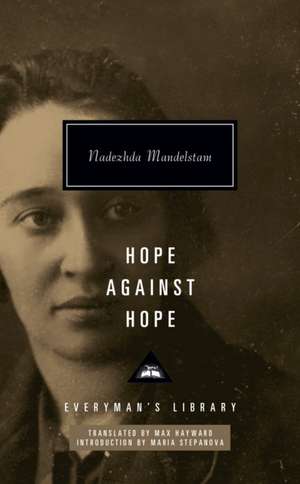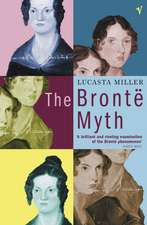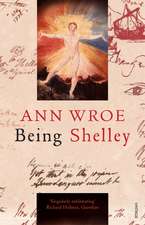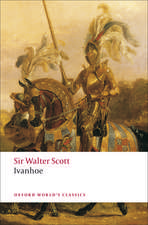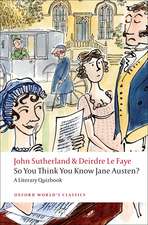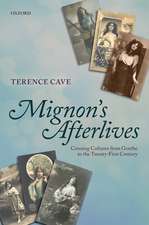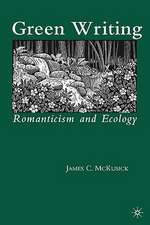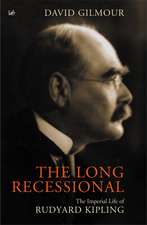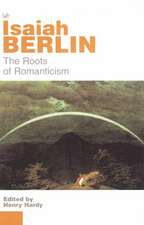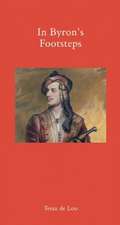Hope Against Hope: Everyman’s Library Contemporary Classics
Autor Nadezhda Mandelstam Traducere de Max Haywarden Limba Engleză Hardback – 5 oct 2023
Nadezhda saw it as an opportunity for her husband to mend his shattered life, but it was a trap and he was arrested for the last time. 'My case will never be closed', Osip once said, and it is mostly through the courageous efforts of Nadezhda that his memory has been preserved.
| Toate formatele și edițiile | Preț | Express |
|---|---|---|
| Paperback (1) | 93.91 lei 24-35 zile | +38.30 lei 4-10 zile |
| Harvill Press – mai 1999 | 93.91 lei 24-35 zile | +38.30 lei 4-10 zile |
| Hardback (2) | 105.19 lei 24-35 zile | +43.22 lei 4-10 zile |
| EVERYMAN – 5 oct 2023 | 105.19 lei 24-35 zile | +43.22 lei 4-10 zile |
| Knopf Doubleday Publishing Group – 14 noi 2023 | 194.89 lei 3-5 săpt. |
Din seria Everyman’s Library Contemporary Classics
- 14%
 Preț: 95.08 lei
Preț: 95.08 lei - 13%
 Preț: 96.51 lei
Preț: 96.51 lei - 11%
 Preț: 101.14 lei
Preț: 101.14 lei -
 Preț: 108.78 lei
Preț: 108.78 lei - 13%
 Preț: 182.39 lei
Preț: 182.39 lei - 14%
 Preț: 94.54 lei
Preț: 94.54 lei - 33%
 Preț: 73.22 lei
Preț: 73.22 lei - 13%
 Preț: 96.40 lei
Preț: 96.40 lei - 15%
 Preț: 92.97 lei
Preț: 92.97 lei - 16%
 Preț: 86.07 lei
Preț: 86.07 lei - 12%
 Preț: 105.62 lei
Preț: 105.62 lei - 34%
 Preț: 115.28 lei
Preț: 115.28 lei - 14%
 Preț: 83.48 lei
Preț: 83.48 lei - 11%
 Preț: 77.13 lei
Preț: 77.13 lei - 15%
 Preț: 88.31 lei
Preț: 88.31 lei - 14%
 Preț: 94.42 lei
Preț: 94.42 lei - 13%
 Preț: 97.10 lei
Preț: 97.10 lei - 15%
 Preț: 110.11 lei
Preț: 110.11 lei -
 Preț: 142.44 lei
Preț: 142.44 lei - 20%
 Preț: 86.42 lei
Preț: 86.42 lei - 16%
 Preț: 84.69 lei
Preț: 84.69 lei - 13%
 Preț: 74.61 lei
Preț: 74.61 lei - 16%
 Preț: 91.68 lei
Preț: 91.68 lei - 12%
 Preț: 116.12 lei
Preț: 116.12 lei - 17%
 Preț: 78.60 lei
Preț: 78.60 lei - 14%
 Preț: 71.99 lei
Preț: 71.99 lei - 15%
 Preț: 71.59 lei
Preț: 71.59 lei - 15%
 Preț: 82.31 lei
Preț: 82.31 lei - 13%
 Preț: 74.33 lei
Preț: 74.33 lei - 13%
 Preț: 90.96 lei
Preț: 90.96 lei - 14%
 Preț: 72.09 lei
Preț: 72.09 lei - 14%
 Preț: 83.58 lei
Preț: 83.58 lei - 24%
 Preț: 67.57 lei
Preț: 67.57 lei - 14%
 Preț: 101.73 lei
Preț: 101.73 lei -
 Preț: 132.62 lei
Preț: 132.62 lei - 15%
 Preț: 81.85 lei
Preț: 81.85 lei - 16%
 Preț: 90.55 lei
Preț: 90.55 lei - 14%
 Preț: 105.49 lei
Preț: 105.49 lei - 10%
 Preț: 67.17 lei
Preț: 67.17 lei - 15%
 Preț: 104.91 lei
Preț: 104.91 lei - 13%
 Preț: 115.40 lei
Preț: 115.40 lei - 15%
 Preț: 93.85 lei
Preț: 93.85 lei - 16%
 Preț: 69.63 lei
Preț: 69.63 lei - 13%
 Preț: 115.21 lei
Preț: 115.21 lei - 14%
 Preț: 83.82 lei
Preț: 83.82 lei - 13%
 Preț: 63.22 lei
Preț: 63.22 lei - 13%
 Preț: 86.31 lei
Preț: 86.31 lei - 14%
 Preț: 73.20 lei
Preț: 73.20 lei - 12%
 Preț: 87.17 lei
Preț: 87.17 lei
Preț: 105.19 lei
Preț vechi: 122.97 lei
-14% Nou
Puncte Express: 158
Preț estimativ în valută:
20.13€ • 20.94$ • 16.62£
20.13€ • 20.94$ • 16.62£
Carte disponibilă
Livrare economică 28 martie-08 aprilie
Livrare express 08-14 martie pentru 53.21 lei
Preluare comenzi: 021 569.72.76
Specificații
ISBN-13: 9781841594125
ISBN-10: 1841594121
Pagini: 584
Dimensiuni: 126 x 208 x 33 mm
Greutate: 0.62 kg
Editura: EVERYMAN
Seria Everyman’s Library Contemporary Classics
ISBN-10: 1841594121
Pagini: 584
Dimensiuni: 126 x 208 x 33 mm
Greutate: 0.62 kg
Editura: EVERYMAN
Seria Everyman’s Library Contemporary Classics
Notă biografică
Nadezhda Mandelstam (Author)
Nadezhda Yakovlevna Mandelstam was born in Saratov in 1899, but spent her early life in Kiev, studying art and travelling widely in Western Europe. She learned English, French and German fluently enough to undertake extensive translation work, which supported her in the hard years ahead. She met the poet Osip Mandelstam in Kiev in 1919, and they married in 1922. From then until Osip's death, her life was so inextricably linked with her husband's that without her extraordinary courage and fortitude most of his work would have died with him. She spent the Second World War in Tashkent, teaching English and sharing a house with her close friend the poet Anna Akhmatova. After the war she led an inconspicuous existence as a teacher of English in remote provincial towns. In 1964 she was granted permission to return to Moscow, where she began to write her memoir of the life she had shared with one of the greatest Russian poets of the twentieth century, and where she continued to preserve his works and his memory in the face of official disapproval. Nadezhda means 'hope' in Russian, and she herself chose the English titles for her two-volume memoirs. She died in 1980.
Nadezhda Yakovlevna Mandelstam was born in Saratov in 1899, but spent her early life in Kiev, studying art and travelling widely in Western Europe. She learned English, French and German fluently enough to undertake extensive translation work, which supported her in the hard years ahead. She met the poet Osip Mandelstam in Kiev in 1919, and they married in 1922. From then until Osip's death, her life was so inextricably linked with her husband's that without her extraordinary courage and fortitude most of his work would have died with him. She spent the Second World War in Tashkent, teaching English and sharing a house with her close friend the poet Anna Akhmatova. After the war she led an inconspicuous existence as a teacher of English in remote provincial towns. In 1964 she was granted permission to return to Moscow, where she began to write her memoir of the life she had shared with one of the greatest Russian poets of the twentieth century, and where she continued to preserve his works and his memory in the face of official disapproval. Nadezhda means 'hope' in Russian, and she herself chose the English titles for her two-volume memoirs. She died in 1980.
